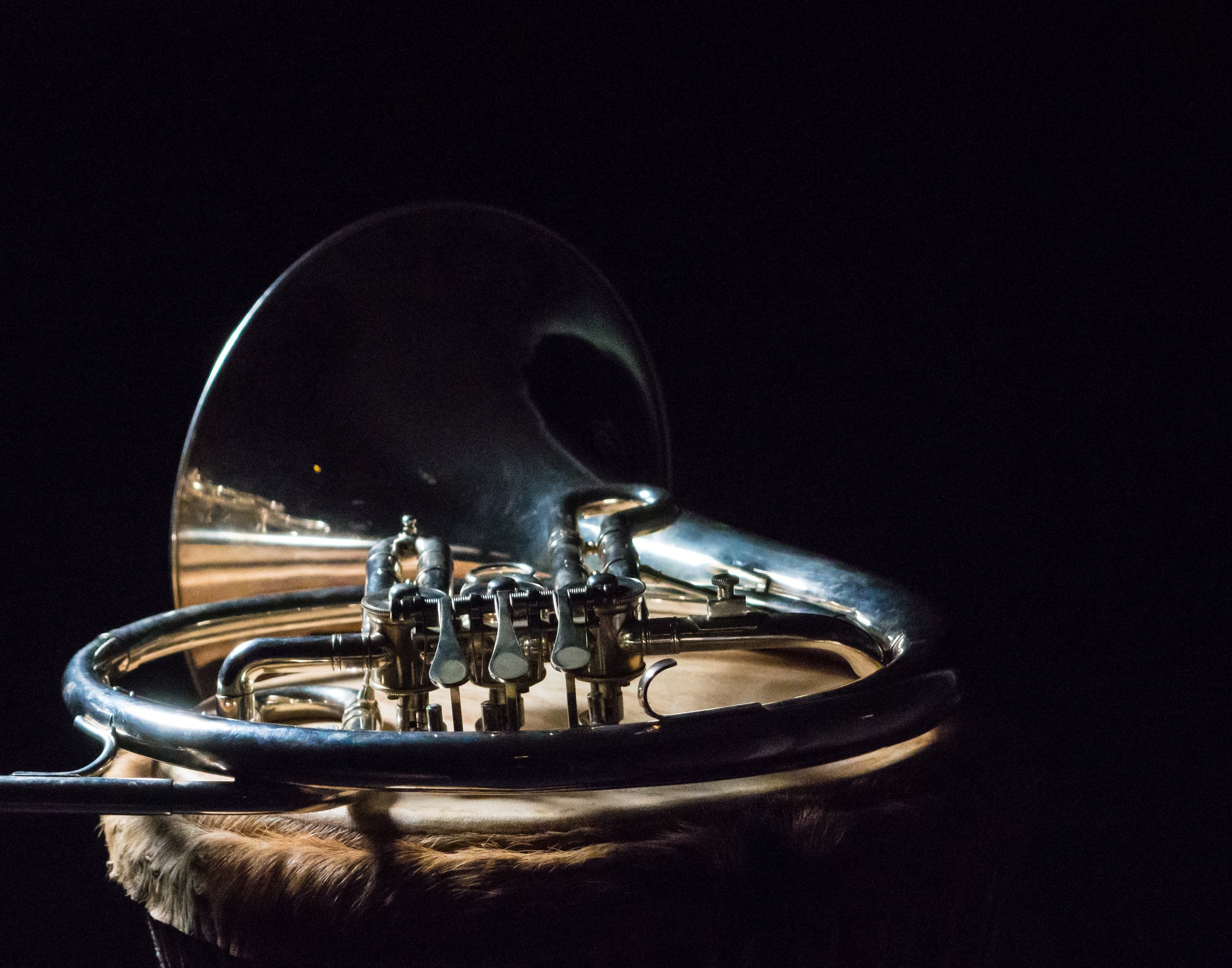Dealing with malfunctioning brass instruments can be intimidating, but fortunately, most common problems can be fixed at home with the supplies in your student’s instrument case. Below, I have listed the most common problems for brass instruments and their solutions.
Sticky Piston Valves
Sticky valves are a common issue with piston instruments such as the trumpet, baritone, euphonium, and tuba. When functioning properly, the valves spring up once the player lifts his fingers from the keys, but when not oiled regularly, they may rise slowly or get stuck. To fix this problem, unscrew the top valve cap, remove the valve and apply valve oil to the spring and the valve shaft and return it to the valve casing. Depress and release the valve keys until the valve springs up smoothly. If you can’t unscrew the top valve cap, unscrew the bottom valve caps or pull out the tuning slides and apply oil from there.
*Note: if you remove the valve slides make sure to depress the corresponding valve keys when you return them.
Slow Rotaries and Broken French Horn Strings
If your child plays the French horn, she will also encounter the sticky-valve problem, but the oiling procedure works differently. To oil the French horn, remove the tuning slides, turn the horn so the bell faces the ceiling, and squirt a light valve oil into the tubes. Gently rock the horn to swish the oil around, then press and release the keys and replace the tuning slides. Next, unscrew the front valve caps and apply a dab of heavy rotary oil on the knob, replace the cap, and apply another dab to the back of the rotary valves where the shaft comes out of the rotary. If this procedure doesn’t fix the problem, check to see if the horn has broken strings. If the strings to connecting the keys to the rotary break, the horn will not play properly. This repair is tricky, so I recommend seeking the help of a band director or instrument repair technician.
Dead Air
Dead air (a toneless buzzing sound) is caused by two main factors. The first is missing instrument pieces. Make sure that all slides and caps are secured in their correct locations. If anything is missing, the instrument will make a buzzing sound. For piston instruments (trumpet, baritone/euphonium, tuba), another cause of dead air is misaligned valves. To fix this problem, unscrew the top valve cap and slide the valves out far enough to see the number printed on each valve. If the valves are in the right positions (with valves 1, 2, and 3 corresponding to the index finger, middle finger, and ring finger respectively), close them up and turn the top of each key until you hear a click. Newer instruments’ valves are designed to settle into their casings using this method, but if your student is using an older instrument, it may be a bit more finicky. Check to make sure that the plastic pieces line up with the notches in the valve casing as you slide them in. Once each valve is aligned properly, the instrument should resume playing normally.
Sluggish Trombone Slide
Sluggish trombone slides are usually caused by a buildup of gunk on the slide tubes. To fix a sluggish trombone slide, take the slide off the instrument completely and wipe off the tubes with a lint-free cloth. Apply dabs of trombone slide cream down the length of the interior slide tube and then work the slide, pushing it in and out. Next, spray the slide with a mist of water and work the slide again. Please note that you should never use slide grease on a trombone slide under any circumstances. The trombone’s slide must be able to move quickly, and slide grease will gum up the slide, making it impossible to play.
The key to mitigating instrument malfunctions is practicing proper instrument maintenance. Make sure your student knows how to perform the maintenance tasks specific to his or her instrument, and talk to an instructor today about how to take care of your child’s brass instrument.
*Disclaimer: I am not a professional instrument repair technician and I assume no liability for injuries or damages incurred through the improper implementation of the following procedures. Please use caution and consult a professional instrument repair technician if you are unsure about how to proceed.
- Jordan Koehlinger, Administrative Assistant/Music Instructor at Vibe Music Academy.


